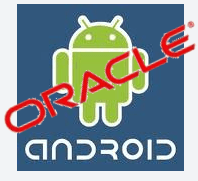| Oracle v Google - Are Computer Languages Copyrightable? |
| Written by Sue Gee | |||
| Saturday, 14 April 2012 | |||
|
Oracle's case against Google now appears to be more about copyright than about patents and as such raises a fundamental issue that could have much wider ramifications than just this case. Can a programming language be copyrighted? As part of the preparations for trial due to start next week, Judge William Alsup issued an order that goes straight to the heart of the matter: 'Each side shall take a firm yes or no position on whether computer programming languages are copyrightable" The order continued: In addition, each side shall include whether it has ever taken an inconsistent position before any other court or agency, including the PTO, and if so, append those inconsistent statements.
Google summarized its position in a very clear manner:
Oracle, on the other hand, argues:
In its submission Google goes on to make the case that APIs are similarly not copyrightable. Moreover, it argues that APIs are integral to the Java programming languages stating:
Oracle's position is that APIs are copyrightable, that the Java APIs are not part of the programming language and that Google perviously acknowledged that the
That is if you are considering the copyright of the language which APIs you also bring to the table are optional extras. The language and its APIs are two distinct entities. One point Oracle slips includes into its filing is that Andy Rubin had revealed in an internal email at Google that he was aware that Sun claimed copyright protection for the APIs - the basis for a "wilful infringement" claim if the court decides that APIs are indeed copyrightable. Copyright issues are the topic of the first phase of the trial and in order to reach decisions the jury will need an understanding of how APIs and class libraries relate to the Java programming language. It seems the judge has also requested that video tutorial material is provided by both parties. To what extent will the fundamental issue raised by this case, are programming languages copyrightable, be decided on the quality of the YouTube videos created by Oracle and Google? If Google loses then the most likely outcome is that Oracle will accept money in recompense for its "loss" and not actually attempt to shut down Android. Of course, how Android would have to change to be accepted by Oracle is another matter. The future of Android is a worry but there is an even wider issue. Suppose the court decides that APIs are copyrightable, then the whole programming universe is going to have to change. The most direct consequence is that who is in charge of the Java infrastructure is no longer in doubt . Many companies might well decide that having Oracle breathing down their necks is not acceptable and a mass migration to a true open source language with copyright free APIs is an obvious response. So a win for Oracle might mean the start of the end for Java. In such a dystopian future we will all have to think about how APIs are built into our programs if we are to avoid future law suits. The trial starts Monday April 16th and is expected to last eight weeks. Stay posted for updates as it progresses. More InformationJudge's Order on Copyright Positions Related ArticlesOracle v Google No Pre-Trial Settlement Oracle v Google - No Offer of Settlement Oracle v Google Trial Could Start April Patent Office ruling reduces Oracle's case against Google Oracle wants injuction against Android - what would that mean? Oracle sues Google for Android Java use
Comments
or email your comment to: comments@i-programmer.info
To be informed about new articles on I Programmer, subscribe to the RSS feed, follow us on Google+, Twitter, Linkedin or Facebook or sign up for our weekly newsletter.
|
|||
| Last Updated ( Saturday, 14 April 2012 ) |


